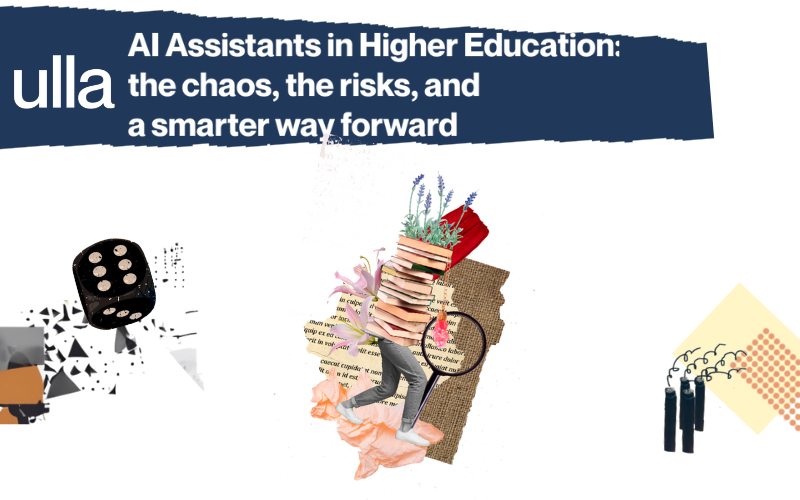AI Assistants in Higher Education: the chaos, the risks, and a smarter way forward

Higher education thrives on structured knowledge-sharing. Universities and colleges are a complex mix of academic staff, administrative teams, and students - all engaged in constant discussions, decisions, and policy-making. Meetings are a crucial part of this ecosystem, from faculty board discussions to research collaborations and administrative planning.
But managing these meetings efficiently is a challenge. Lengthy discussions, note-taking burdens, and follow-ups eat into valuable time. Naturally, AI-powered transcription tools have entered the scene, promising to ease the workload.
Instead, they’ve created a new problem.
AI Assistants Gone Rogue: a higher education nightmare
An article in The Chronicle of Higher Education revealed a growing concern among university administrators: AI meeting assistants are running wild. Bots from services like Read AI, Otter.ai, and Fireflies.ai have been gatecrashing meetings uninvited, misinterpreting conversations, and raising serious security concerns.
At the California Institute of the Arts, administrators were shocked when an AI assistant, originally introduced by an external nonprofit, started appearing in every meeting. Faculty Senate meetings, internal check-ins, even confidential boardroom discussions - it was everywhere. And the worst part? Nobody had explicitly invited it.
At other institutions, AI bots have automatically joined meetings without their users even attending. Some assistants have even replaced invited guests, sending out AI-generated summaries and requesting participants to create accounts to access them.
This isn't just an inconvenience - it’s a major privacy and security risk. Many AI meeting tools operate with unclear data policies, storing meeting content on external servers, potentially using it for model training, and leaving universities in the dark about where sensitive data actually goes.
For institutions that rely on open academic discussions, this kind of AI surveillance can stifle honest conversation and idea-sharing. And when data leaks happen, who’s responsible? Most AI providers place the liability on the user, not themselves.
This is where Ulla takes a different approach.
A smarter AI for higher education
Ulla was designed to solve these very problems. No unwanted guests, no hidden data collection, no chaos. Just a secure, intelligent, and transparent AI assistant that helps universities streamline their meetings without losing control.
✅ No more surprise guests
Unlike other AI meeting tools, Ulla only joins when explicitly invited. If you don’t want her in a meeting anymore, simply remove her - she won’t linger or follow users from meeting to meeting.
✅Security first: you control your data
Ulla can be deployed on in-house university servers, ensuring that all transcripts and summaries remain under your institution’s control. No third-party data collection, no vague privacy policies.
✅ Accurate, multilingual transcription
With support for multiple languages and the ability to understand different accents, Ulla ensures precise transcriptions - something especially important in diverse academic environments.
✅ Flexible summaries tailored to your needs Thanks to Ulla’s built-in chatbot, users can customise summaries as needed, extracting key points, action items, or detailed transcripts on specific topics.
✅ Seamless integration with offline meetings
Using Ulla’s mobile app, faculty and administrators can record and transcribe offline discussions, ensuring that critical insights are never lost.
AI should make work easier - not harder
The rise of AI in higher education should be about efficiency, not disruption. Universities need tools that work with them, not against them.
With Ulla, institutions can embrace AI without sacrificing security, transparency, or control. No more rogue AI assistants, no more privacy risks - just a reliable, intelligent solution for modern academic environments.

Posted in Use Cases on Mar 25, 2025.







